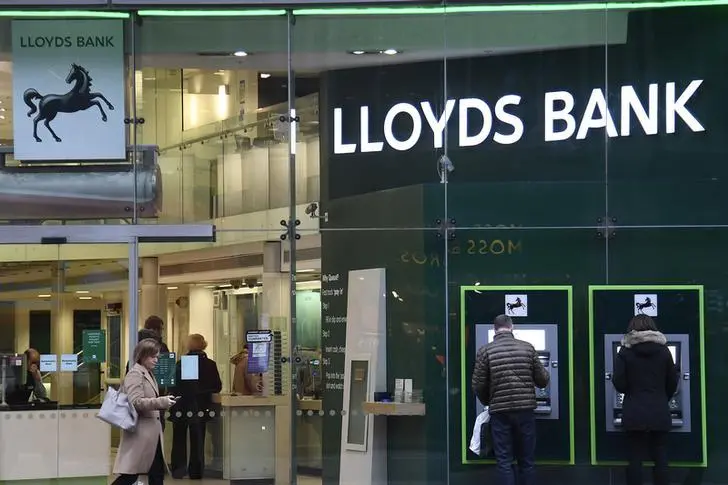PHOTO
LONDON (Reuters Breakingviews) - UK bank shareholders lurch from one problem to the next these days. Just after absorbing another hit for flogging flawed payment protection insurance policies, and with the risk of a chaotic Brexit receding, investors in Lloyds Banking Group now face a shrinking top line and rising bad debts. It’s a risk for Chief Executive Antonio Horta-Osorio’s premium valuation.
The 40 billion pound lender had already flagged that its third-quarter results would include a 1.8 billion pound PPI charge. The long-running scandal, in which Lloyds and its rivals mis-sold insurance products to British borrowers, has seen lenders pay out over 36 billion pounds in compensation and refunds since 2011. The latest provision dragged Lloyds to a net loss in the quarter and forced Horta-Osorio to halt this year’s share buyback programme.
The surprise in results released on Thursday was that, even before PPI and restructuring charges, Lloyds generated just 1.8 billion pounds of pre-tax profit in the three months ending in September. That was 12% lower than in the same period of last year and 8% below analysts’ consensus estimates.
Lloyds blamed the decline partly on “subdued levels of client activity” in the markets division of its commercial banking arm. Just as worrying is that bad-debt provisions rose by nearly a third year-on-year, to 371 million pounds. That figure was inflated by a single large corporate hit, possibly collapsed travel group Thomas Cook.
Investors will take comfort that the underlying level of bad debt charges remains relatively low. Combined with Horta-Osorio’s prodigious cost-cutting and the bank’s beefy 13.5% common equity Tier 1 capital ratio, that has helped underpin Lloyds’ premium valuation. Its shares trade above tangible book value, while peers like Royal Bank of Scotland are valued at a discount. The risk is that a one-off impairment hit becomes routine as a slowing economy pushes more corporate borrowers into distress. The ongoing decline in the bank’s net interest margin is another cause for concern. At the very least, the results show that Horta-Osorio’s problems transcend PPI.
CONTEXT NEWS
- Lloyds Banking Group on Oct. 31 reported a net loss for the third quarter due to a 1.8 billion pound charge for mis-selling of payment protection insurance.
- Revenue was 4.2 billion pounds in the three months ending in September, 6% lower than in the same period a year earlier.
- The British lender’s total costs were 5% lower at 2 billion pounds. Provisions for loan losses rose by almost one-third to 371 million pounds. Underlying profit, Lloyds’ preferred measure of pre-tax profit which excludes charges for restructuring and PPI mis-selling, fell 12% year-on-year to 1.8 billion pounds.
- Lloyds shares were down 2% at 0845 GMT on Oct. 31.
(Editing by Peter Thal Larsen and Karen Kwok. Graphic by Vincent Flasseur.)
© Reuters News 2019





















